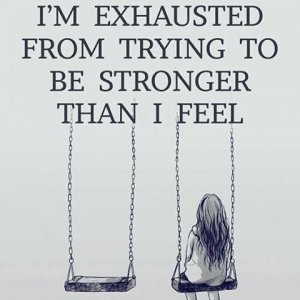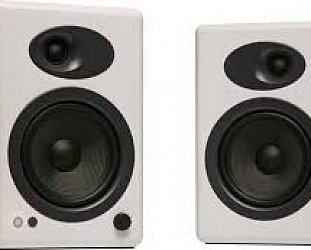Graham Reid | | 2 min read

So, until he published his recent autobiography, who knew Bruce Springsteen had been suffering massive anxiety issues for over a decade?
The man who seems to stride the world confidently has been on anti-depressants.
Those of us who read the biographies or autobiographies of musicians, or just encounter them as real people in the nature of work, are often aware that with some people things are “not quite right”.
Sometimes it takes the form of addiction – and David Lee Roth of Van Halen noted alcohol is the worst because it's legal and everywhere – but at least we can see that.
The hidden fears, doubts and depression often don't manifest themselves so visibly.
Musicians retreat into themselves, their time in the necessary spotlight becomes increasingly difficult, the doubts become even more extreme.
When musicians commit suicide we are often shocked.
And yet given the stress they are under, the relentless requirement for them to be creative, the disjunction between public persona and private life, the temptations of the flesh and soul . . .
Sometimes we should be grateful many of them survive at all.
In mid 2016 the New Zealand Music Foundation – a charity dedicated to supporting musicians and those in the industry – released the results of a health survey it conducted.
The breakdown of what they discovered was alarming.
Over a third of songwriters, composers and performers reported they had been diagnosed with a mental health disorder (almost twice that of the general population), and twice as many in that group as opposed to the general population reported having attempted suicide . . .
And it gets worse: 84% of those who responded said they had experienced such stress in the preceding year that it affected their ability to function, and the results showed that songwriters/composers were two and half times more likely to have been diagnosed with depression than those in general population.
As Truman Capote noted, “When God hands you a gift, he also hands you a whip; and the whip is intended solely for self-flagellation”..
 If there was any good news to come out
of this troubling and sad survey it was that nearly two-thirds of
those who responded said they would be likely to contact something
like the New Zealand Music Foundation Wellbeing Service if they were
experiencing problems.
If there was any good news to come out
of this troubling and sad survey it was that nearly two-thirds of
those who responded said they would be likely to contact something
like the New Zealand Music Foundation Wellbeing Service if they were
experiencing problems.
That recently-launched service – a world first – offers 24-hour online, phone and personal counseling which is specifically designed to meet the needs of those in the music industry.
It is free of charge to anyone in the New Zealand musician industry who is suffering from financial hardship and the people involved are all registered professionals attuned to the needs of creative people in stress.
The New Zealand Music Foundation – which is a registered charity – was established in 2012. It develops and supports projects across New Zealand that use music in healthcare, education, rehabilitation, volunteering and all areas of society to positively influence the lives of those in need. It also provides caring, confidential and practical assistance in times of illness, distress and hardship to members of the New Zealand music community.
Have a look at the clip below and admire the candour of these musicians who have suffered.
We encourage you to support the Foundation in its work to keep our creative people – the ones who bring pleasure into our lives, but sometimes at great personal cost – healthy and well . . .
And with us.
The New Zealand Music Foundation Wellbeing Service can be accessed now at www.nzmusicfoundation.org.nz/wellbeing, via email at wellbeing@nzmusicfoundation.org.nz or by telephone on 0508 MUSICHELP.
You can read the Wellbeing Survey report at www.nzmusicfoundation.org.nz/wellbeing.
The New Zealand Music Foundation is a registered charity. To support the Wellbeing Service and the other work of the charity, please visit www.nzmusicfoundation.org.nz.





post a comment